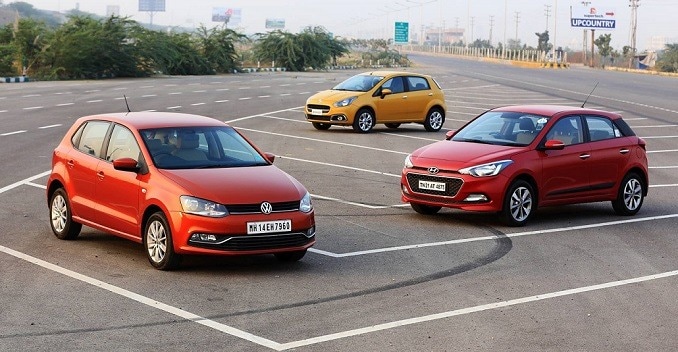
Brake-horsepower, naught-to-hundred numbers, performance body-kit - are you the kind that indulges in such stuff? Are you that loony-head who spots a curving section on the road and decides to dial in more revs and attack it? If you are, then you'll like the fact that the three cars that we have gathered here are trying to march towards the 'hot-hatch' spectrum. You could argue that Volkswagen already has two cars that would fit the tag - Polo GT TSI and GT TDI, but that's for another day.
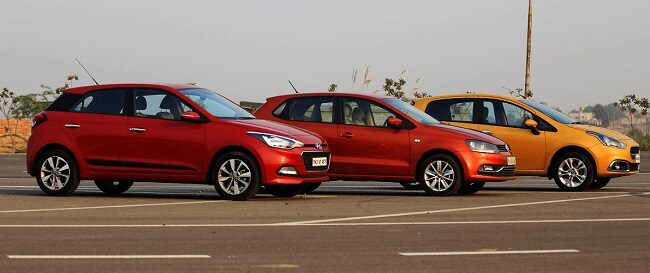
Between Vikas, Kritika and I, we've been driving each of these cars for over a month - swapping the keys, and keeping the odometer count ticking. Let me tell this to you right at the outset - we didn't share notes until the very last moment to maintain complete transparency towards our respective results and opinions. However, when we did, it was startling to note that the final outcome was pretty much the same.
Lest I amass hate-comments, let me clarify that looks of a product is a very subjective thing and you're entitled to your choices. For me though, the Punto just doesn't work somehow. It is the most noticeable of the three here - and that's not just because it wears yellow all over itself, but also because of its obnoxious front-end design and the forced chrome on its posterior.
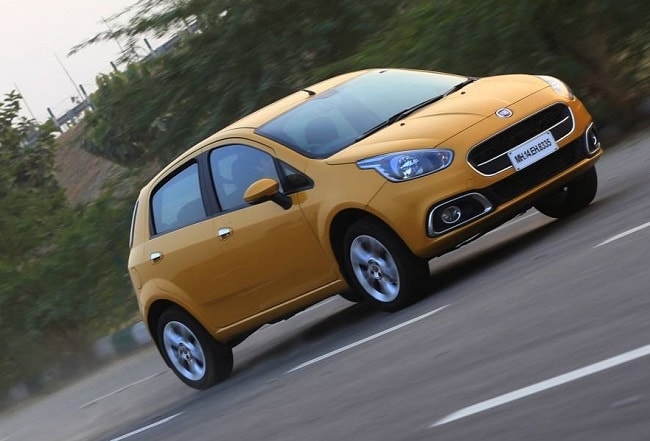
Why did Fiat do such a terrible cosmetic job is completely beyond me. Plus it's being called EVO - which is just wrong. Why I say that is because the 'EVO' tag brings about many flashes of automotive brilliance that Mitsubishi has produced over the years. The Punto EVO is nothing other than a slightly evolved, relatively fouler version of the standard Punto.
Sure, the EVO gets a nicer cabin - but that's relative to its pre-facelift avatar. This thing is just not on the same scale as the i20 or the Polo. The quality is severely last-decade and the shiny dashboard reflects so badly on the windshield that there are moments when you feel like either breaking the windscreen, or demolishing the dashboard itself.
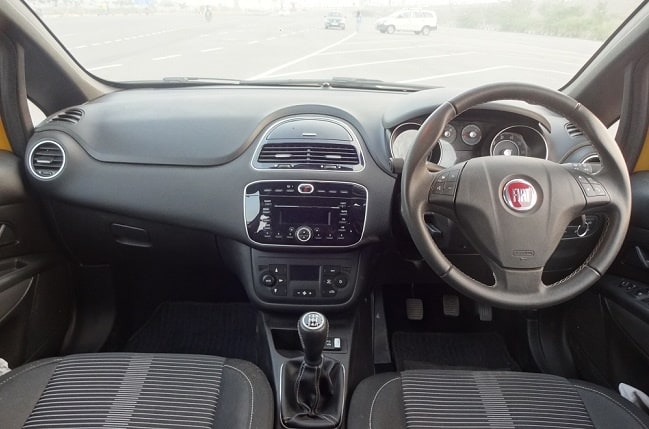
But there're some strong points too. The space is very decent - our camera person, Arif, was most comfortable in the Punto and was moaning about the lack of space in the Polo. The handling, too, is really good and the tyres grip fairly well. It has the best turn-in of the three and it's not rebellious in nature at all. That said, the absolute joy-giver is this car's steering - it's a hydraulic unit and it feels a lot more connected than the electric systems. It may not get a geek's affirmation, but the fact that it feels slightly more physical makes it a lot more enjoyable than anything else in the hatch segment today.
The Punto EVO gets its drive from a 1.3-litre MultiJet diesel engine that Fiat supplies to many other car makers. Surprisingly, Fiat's customer-companies do a better job of noise insulation. In the Punto EVO, this diesel unit makes a really loud racket. You may even say it sounds very raw. Now, I like raw in my mechanical companions; but it's not really a pleasant experience and you keep praying that the Gods of all-things-motoring would make this thing die instantly. And if that wasn't enough, the gearbox feels like its fed gluten and the shifts have a really artificial, rubbery feel to them. I'm not saying the shift quality isn't slippery enough - it is, but the experience lacks the feeling of it being a satisfying event in the process of driving.
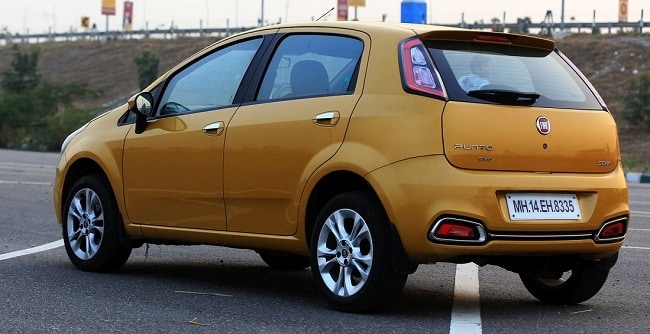
The Punto EVO isn't really unadorned - it gets a lot of equipment, but it's still not as feature-rich as the i20 is, but that's not the point of this comparison - this is mainly about driving dynamics. The Punto EVO is the most powerful here and it shoots off the line fairly swiftly, but the suspension is absolutely absurd. I was pushing the car around the same sections of the road as I was the other two - the i20 and Polo - and the Punto EVO displayed extreme eagerness to hopping on the road. It felt as if the suspension was always too busy doing something-or-the-other; it never felt settled and composed. And that prevented the Punto EVO from being a committed and fun car. That made it oddly anxious. That's not a good thing. On the whole, I have to say, the Punto EVO has a rather good engine; but there's not much else to it.
When Hyundai introduced its refreshed i20, I was very surprised by it. Seemingly, the company had sorted most of the issues that crippled the previous model and the 'newer' i20 promises to be a much more composed and sorted driving experience. To be honest, it does come very close to all its claims - it really has become an extremely sorted product now.
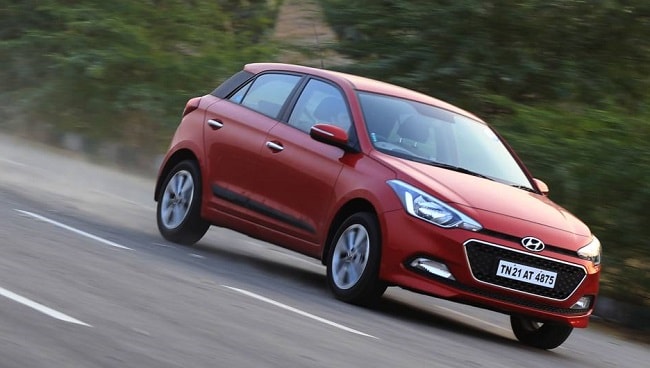
For doing the obligatory home-office-and-back exercise, there are few cars in the sub-10-lakh bracket that come close to the i20. It has a fabulously designed interior and even the quality is almost as good as its German rival here. I usually don't care about the overall style factor of a car, but it does matter to a great extent and the more special a car looks, the more 'wow' factor it has, and in this department, there's nothing that matches the i20.
The i20 wasn't ever a bad looking product - it actually looked quite nice in the populated hatchback segment, but with the latest update, Hyundai has pulled off an absolute supermodel. The current i20 makes the previous one look insipid and some other hatchbacks just pure stupid. The rear, I think, is the most attractive part of the car and has an unmistakable Alfa-Romeo look to it. However, I'm more concerned with the way it drives - because the previous model was not really that great.
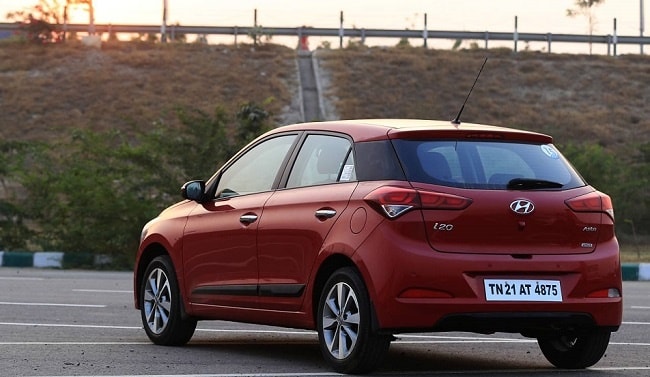
I've driven both, the new one and the model it has replaced, on the track as well - on the BIC, that is; India's very own F1 circuit. When testing the previous model on the track, we had a bunch of other diesel hatchbacks for good measure and the i20 came out on top of the lap-time chart. It wasn't very surprising because the 1.4-litre diesel engine delivered oodles of power and the horsepower advantage alone made it clock well around the BIC. Other cars like the Figo and Pulse were more engaging and fun though because they communicated and responded better around the bends, but the lack of power saw them falling by the wayside. The i20, on the other hand, had absolutely no sense of connection and the steering felt like it had no life.
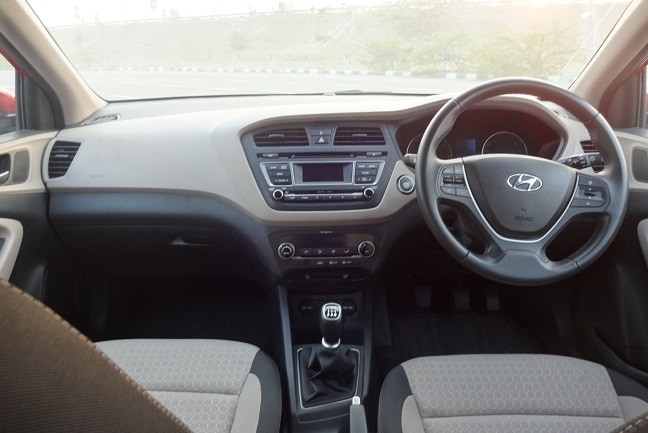
The new i20 feels more alive right from the moment you slot it in first and set off. Yes, the steering still has a very artificial and vague feel to it, but it is slightly better than before and the suspension is rather sorted and controls the body-roll around corners quite well. The chassis is also more assertive and you can go around bends at a rapid pace without fearing that the car wouldn't come around according to your inputs. The i20's suspension is still slightly on the softer side and you do feel swaying when you drive over some dips on the road at speed. Otherwise, it's brilliant at soaking all bumps at city speeds and the seats are also the best in the business here - wide, and offer good all-round support.
It's a car that's hard to fault, really. It's comfortable, efficient and it's loaded with absolutely all the necessary features - and then some. Yes, it doesn't feel too connected and has a bit too much of an artificial feel and the engine has absolutely nothing below 2000rpm, but truth be told, it's quite reasonable to drive. It has that 'special something' which is missing, and that matters.
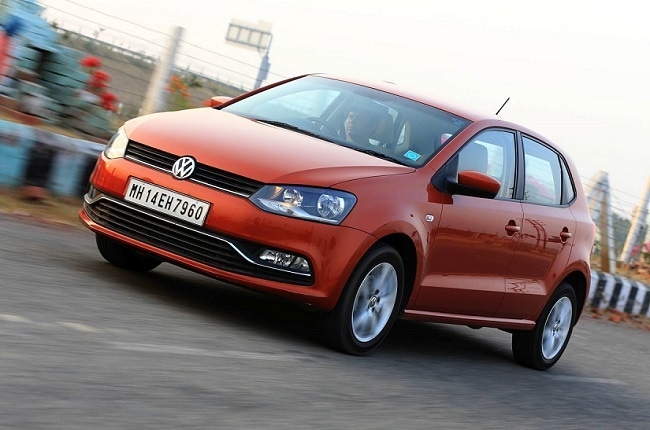
That's where the Volkswagen Polo shines brighter than the other two. First thing that struck me was that its size is so much more manageable than the other two. Hatchbacks are becoming big and fat and unnecessarily pretentious. So it was really nice to get behind the wheel of a small car that really was that - small. The dimensions are just fine and the shape is also pleasing, if not sexy or exciting. I somehow find myself drawn more to the straight-lines, simple-design sort of cars. The Polo now gets a 1.5-litre engine and that makes a whole lot of difference. It's got a very useful spread of torque that peaks out at 230Nm. You might say that the GT TDI is more powerful, and therefore more fun; but I'm not convinced if it is - especially not really good enough to justify a one-lakh gap north of the regular 89bhp model.
The more you drive the Polo, the more you like it - and dislike it. The steering is delightfully direct and weighted; despite of being an electric unit. The chassis feels like it can handle much more power and it has a great 'heavy' feeling to it which inspires confidence and lets you push the car as much as your nerves would allow.
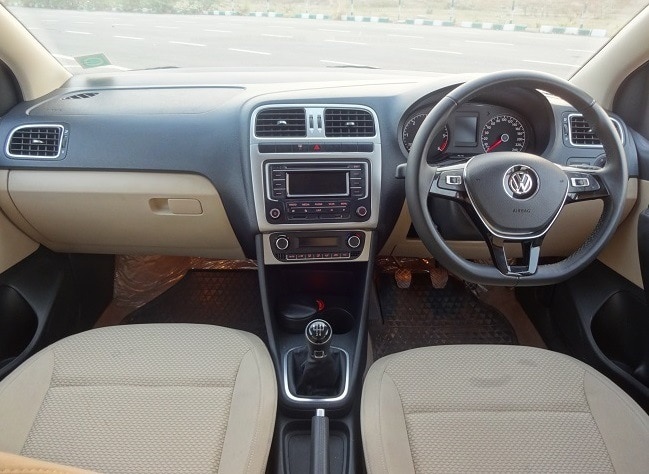
One problem is that the seats are quite silly and don't hold you well when you're going rapidly around a bend. The other problem is the suspension - it's soft and though it is good at soaking in the bumps, it's really not well-suited for animated driving.
But Polo's biggest problem is the i20. In a car that costs about 8 lakh rupees, you can't ignore the manual controls for things that you expect to be electronically operated - electronically folding rear view mirrors for instance. There's not even an auto-dimming option for the inside rear view mirror - that's really pushing the boundaries. However, the Polo comes with airbags as standard across the variant list, and I think I can live with the other controls being manual if I get safety items like ABS and airbags.
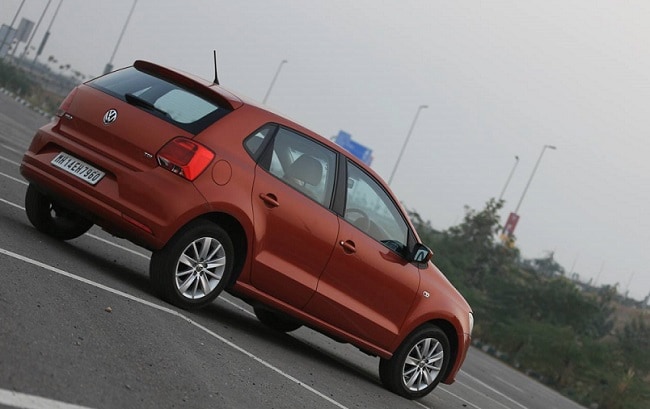
All the shortcomings in the Polo still don't stop it from being the most fun car here. The power delivery is the most linear and it pulls right from as low as 1000rpm while the others struggle till around 2000 and though the seats could be better, it still gives you the best driving position of the three cars. The pedal position, too, is perfectly suited for heel-and-toe shifting.
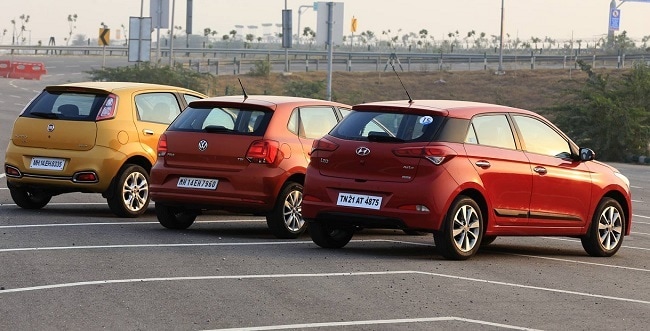
But these cars are still not of the 'hot-hatch' level. It's a good start, and things will (hopefully) only get better and more manufacturers (again, hopefully) will embrace this relatively small-volumes segment just to help build somewhat of an enthusiast culture in the mass segment of motoring here. Amen
No comments:
Post a Comment